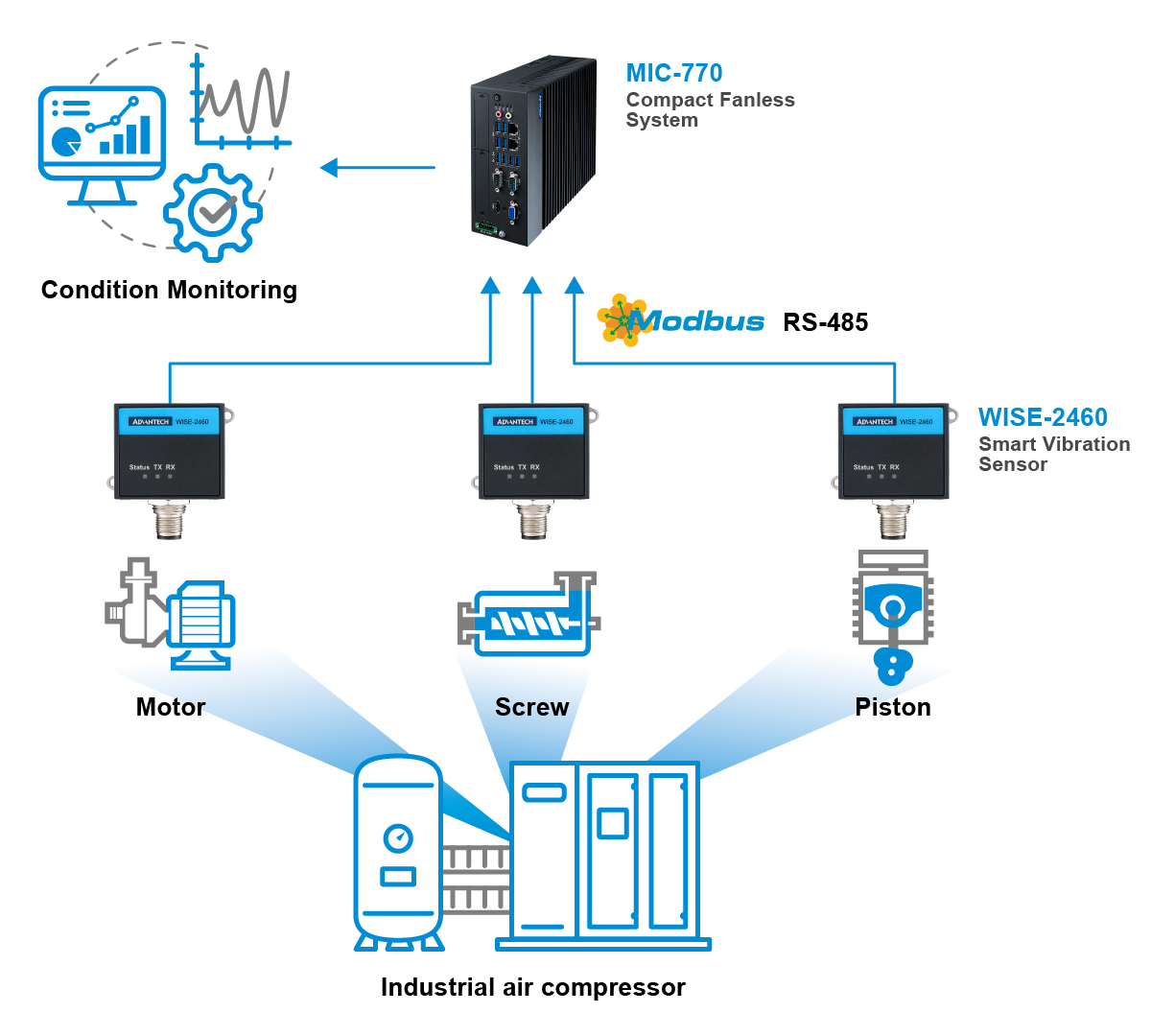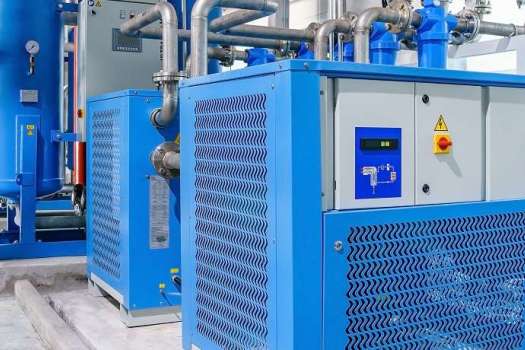Optimizing Plastic Manufacturing Processes with Smart Vibration Sensors
Background
The air compressor plays a crucial role in the plastic injection molding process, providing compressed air to drive the movement, mixing, and molding of plastics. From plastic melting to mold filling, compressed air is required at every step. Therefore, ensuring the smooth operation of the air compressor is essential. High-frequency vibration sensors can be used to monitor the air compressor, detecting issues early and enabling preventive maintenance.
System Requirements
The customer needs to address issues with the air compressor, such as abnormal vibrations, fault detection, and preventive maintenance. They are seeking an efficient monitoring system that can promptly alert to abnormal vibrations and provide fault diagnosis data, in order to reduce production downtime and maintenance costs.
Project Implementation
- WISE-2460: 10KHz@1-axis Smart Vibration Sensor
- MIC-770 V3: High Performance Compact Fanless System
System Description
The customer has implemented the WISE-2460 10KHz single-axis smart vibration sensor, which communicates via Modbus/RTU protocol over RS-485 serial communication. This sensor features a 10KHz single-axis frequency detection range and can measure various vibration data including velocity RMS, acceleration RMS, acceleration peak, displacement, and more. It complies with the ISO 10816 standard. Its IP68 enclosure design is suitable for harsh environments, while also supporting a wide temperature range from -20°C to 105°C, ensuring reliable operation under various temperature conditions. Through the Advantech WISE Studio software, users can easily configure settings such as ISO 10816 alarm thresholds and customizing 10 detection ranges. The WISE-2460 smart vibration sensor is utilized for monitoring the air compressor in the plastic injection molding process. The collected data is transmitted to the rugged MIC-770 V3 compact fanless system for analysis. With a wide range of operating temperatures from -20 to 60 °C and vibration/shock protection, the MIC-770 V3 ensures 24/7 operation in demanding environments. It delivers high-performance CPU computing to serve as a platform for processing and analyzing the data collected by the WISE-2460 sensor. This enables real-time monitoring of the air compressor's condition and facilitates prompt response to any abnormalities, thereby enhancing production efficiency and product quality.
- Sensor Installation: Install the WISE-2460 high-frequency vibration sensor at key locations of the air compressor, such as the motor, screw, piston, and etc. The sensor should effectively detect minor vibration variations at these locations.
- Vibration Pattern Monitoring: Under normal operating conditions, record and analyze the air compressor's normal vibration patterns. Establish a baseline based on this pattern to differentiate between normal and abnormal vibrations.
- Abnormal Alarm Setup: Utilize the sensor's data to establish a monitoring system capable of detecting abnormal vibration patterns in real-time. Trigger alarms and notify operators when the system detects abnormal vibrations.
- Fault Diagnosis: When abnormal vibrations occur, the system should provide sufficient data for fault diagnosis. This may include information such as vibration frequency, amplitude, variations in vibration patterns, etc., to aid in locating and resolving issues.
- Preventive Maintenance: Implement a preventive maintenance plan based on the information provided by the sensor. Regularly inspect and maintain key components of the air compressor based on the analysis of vibration data to prevent potential failures.
- Integrated Monitoring System: Integrate vibration monitoring into the overall process monitoring system. Customers can comprehensively consider data from different sensors to achieve more comprehensive process monitoring and control.
System Diagram

Benefits
After implementing the WISE-2460 10KHz single-axis smart vibration sensor, the customer has achieved the following benefits:
- Early Detection: The sensor promptly alerts to abnormal vibrations, enabling the customer to address issues early and reduce production downtime.
- Fault Diagnosis: The system provides sufficient data for fault diagnosis, helping the customer to quickly resolve problems.
- Preventive Maintenance: Based on the information provided by the sensor, the customer has implemented a preventive maintenance plan, reducing maintenance costs and downtime.
- Customized Settings: With the help of WISE Studio software, the customer can customize alarm thresholds and detection ranges to meet their specific requirements.

